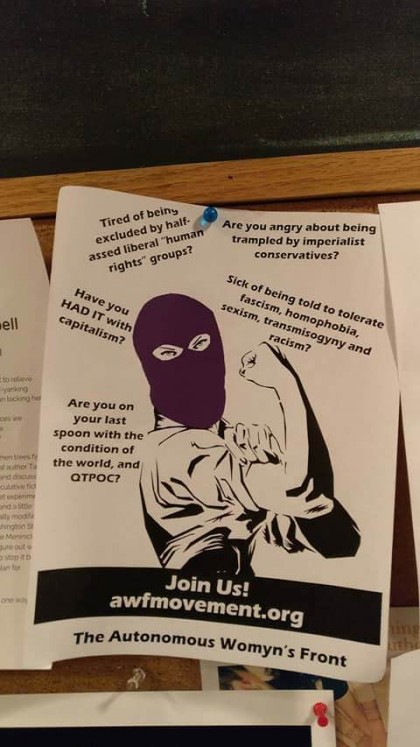Overheard at the Coffee Shop
Devra Torres | Jan 31, 2017
"I was surprised at how big and, like, intersectional it was."
I rolled my eyes, then hoped I hadn't done it too conspicuously, because I wanted to keep on eavesdropping undetected. My daughter was treating me to a macchiato at a coffee shop that had turned out to be more entertaining than we'd bargained for.
The students at the next table over were talking about the recent "Women's March," and they were clearly buzzword-fluent.

"I just feel like the Right has a lot more social institutions in place," said the girl.
"Like churches?" the guy prompted.
"Yeah." They both laughed.
It's a curious thing about people on both political sides these days: we all believe that the country's institutions are firmly in the hands of the other guys, and have been forever. In the eyes of the Left, the various churches are apparently a stronghold of political conservatism. Those on the Right look at higher education, news shows, popular entertainment, and the law and see a heavy preponderance of liberals.
But the reference to churches had turned the conversation to religion. It turned out that the guy was the son of Nigerian parents, though he sounded as stereotypical American-college-kid as any born-and-bred hipster. He described Christianity in Nigeria and his parents' approach:
Christianity is, like, less institutional….My parents figured it’s good to go hear some stuff, but you should form your own opinions either way. Nigerian church services are three or four hours long. There's praise and worship, then the associate pastor gives a talk, then more praise and worship, and then everybody comes and eats...Now in the megachurches a huge segment is Nigerian. It's not so much about the institution of it...
The girl described her own experience. Her parents were part of what sounded like a cult.
To me it seemed really scary, I’m kind of afraid of ever joining something like that. My way of dealing with it is to just avoid religion entirely. My parents had to--we were, like, blacklisted just for leaving...the same thing happens when you leave the Mormon church....
What struck me was that the two of them really didn't fit my stereotypes at all. I would never have pegged him as having foreign-born parents, or her as the product of a strict religious upbringing.
As a mother, especially, I found it disquieting. As a personalist, i know that your children are not like Snickers bars in a vending machine: insert Upbringing X and out pops a child of Convictions Y and Z. I know how childrearing is bursting with unintended consequences: push something too hard and they could rebel; respect their freedom and they could turn out indifferent; and even, it turned out, run away from a cult (as my own parents once did), and they could turn out not just anti-cult but anti-faith tout court. It hadn't occurred to me that a bad experience with a religion that doesn't let you leave could turn you against faith in general. I wouldn't have thought that a second-generation Nigerian could sound so very up-to-the-minute American, or that his compatriots would find our megachurches at all appealing.
On the other hand, their faith histories came up within minutes of their sitting down. They were largely ignorant and heavily prejudiced, but not unintelligent and definitely not indifferent.
Their thoughts on the "Women's March" were 100% unoriginal--much less interesting than their anecdotes about their faiths. Their personal stories were far more fascinating than their ideology.
That, at least, was no surprise.
----------
Image credit: Regina Torres (from a bulletin board in the coffeeshop in question)
